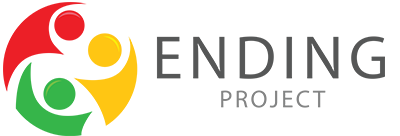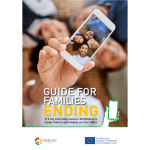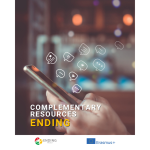Summary of the intervention of Dr. Luis Delgado, from MAPFRE, during the ENDING project “Health and Digital Security in the School Environment”.
In this case we are talking specifically about ICT focused on the Internet and all the devices that connect to it, tablets, computers, consoles, smartphones….
The use of Information and Communication Technologies (ICT) has become an integral part of our lives. Whether it is to work, study, stay connected with friends and family or simply to entertain ourselves. ICT’s provide us with a wide range of options and opportunities. However, their excessive use can have negative effects, especially on children and adolescents, and since their appearance, different pathologies have emerged that affect both physical and mental health: “As a physician, I am seeing more and more pathologies in children, young people and people who are not their age”.
Some of the main physical consequences of excessive use of electronic devices is the appearance of injuries such as tendonitis, or gamer’s thumb, a chronic inflammation due to excessive use of the thumb on these devices, as well as physical discomfort associated with posture, visual fatigue, eye dryness, irritation, headache, early myopia, premature deafness, tinnitus, and pain in the hands and back, among others.
Dependence on social networks and video games can result in psychological disorders such as nomophobia (no-mobile-phone-phobia) and addiction to electronic devices, as well as obesity and diabetes due to a sedentary lifestyle and unhealthy diet.
In addition to this, accidental injuries, suffered by people who cross streets, traffic lights or crosswalks while looking at their cell phones, are currently relevant. Even more serious is the existence of people who criminally use cell phones in vehicles, even causing accidents.
A striking consequence of cell phone use is known as phantom vibration syndrome: “Phantom vibration syndrome is something very curious. It is the sensation that the cell phone vibrates when it is not on our person”.
To prevent these problems, it is important that children and adolescents learn to use ICTs responsibly and appropriately. Some recommendations are:
- avoid forced postures, adopt proper ergonomics when using screens,
- rest and do strengthen and stretching exercises,
- rest the devices on the table or use a support,
- do not use cell phones while performing actions that require special attention,
- take frequent breaks,
- adopt correct posture,
- use ergonomic devices,
- do not use headphones at high volume,
- maintaining a healthy diet and doing physical exercise.
Video game addiction and online gambling are also considered addictive behaviors that can have negative effects on physical and mental health. Proper use is interruptible and problem-free, while abuse can lead to personal or environmental problems. Addiction is a state in which abuse reaches characteristics such as tolerance, compulsive need and inability to interrupt the activity. Dependence on social networks, video games and online gambling are examples of addictive behaviors.
To prevent ICT-related addictions, personal skills such as self-esteem, self-control and problem-solving skills should be fostered, as well as improving social relationships and communication. It is also important to limit the time spent on ICTs and to offer alternatives for fun. Parents and educators should act as good role models and share ICT-free time with children.
“ICT’s benefit us if we know how to use them, if we know how to use them properly. It is essential to teach children and adolescents about the risks and how to use ICT responsibly. Digital health as a concept is achieved when we learn to use ICTs for our benefit or in the environment, without affecting us physically or mentally.”








